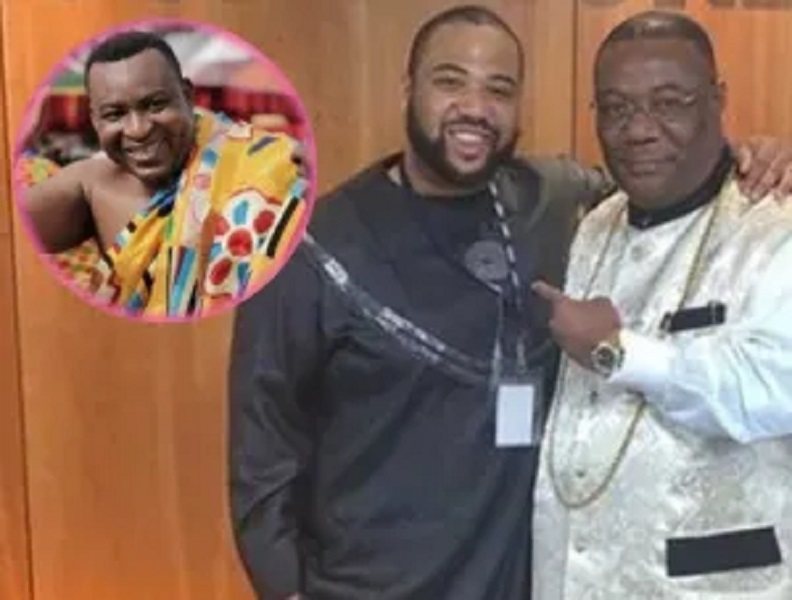The Ashanti Regional Chairman for the New Patriotic Party (NPP), Mr. Bernard Antwi-Boasiako, has cautioned against the unnecessary chastisement directed at Archbishop Duncan-Williams over the decision of his son to pursue a rap career.
The NPP Chairman popularly known as Chairman Wontumi explained to Wontumionline.com that decision by the Archbishop’s son to perform carnal songs, should not be the basis for the public to pour scorn on his ministry.
Chairman Wontumi who has constantly confessed his faith in God openly, stated that just like in Eli’s case from the Bible, his children decided to do things that displeases God and for that reason, were rejected by Him when the time came for someone to fill the shoes of Eli.
“Duncan-Williams is a man of God. If his son is doing something you consider as wrong, you can’t say he (Duncan-Williams) isn’t from God. You can criticize his son just like in Elis case, he had children but God decided to anoint Samuel to take over from him and not his children”, Chairman Wontumi explained.
He noted that Duncan-Williams’ contributions to the growth of Christianity in Ghana and beyond can’t be slept on and for that reason, was very wrong to use his son’s rap career to say he isn’t from God.
“When we talk about Christianity in Ghana, aside from what the Catholics, Presbyterians, Methodists and Pentecostals have done, Duncan-Williams has also paid his dues heavily. He is a Christian and a man of God. If his son decides to perform worldly songs, it is up to him”, Chairman Wontumi said.
The ended by reciting 1st Samuel 2 vrs 12- 36 to support his argument.
The scripture he cited reads :
Eli’s sons were scoundrels; they had no regard for the LORD. Now it was the practice of the priests that, whenever any of the people offered a sacrifice, the priest’s servant would come with a three-pronged fork in his hand while the meat was being boiled and would plunge the fork into the pan or kettle or caldron or pot. Whatever the fork brought up the priest would take for himself. This is how they treated all the Israelites who came to Shiloh. But even before the fat was burned, the priest’s servant would come and say to the person who was sacrificing, “Give the priest some meat to roast; he won’t accept boiled meat from you, but only raw.” If the person said to him, “Let the fat be burned first, and then take whatever you want,” the servant would answer, “No, hand it over now; if you don’t, I’ll take it by force.” This sin of the young men was very great in the LORD’s sight, for they were treating the LORD’s offering with contempt. But Samuel was ministering before the LORD—a boy wearing a linen ephod. Each year his mother made him a little robe and took it to him when she went up with her husband to offer the annual sacrifice. Eli would bless Elkanah and his wife, saying, “May the LORD give you children by this woman to take the place of the one she prayed for and gave to the LORD.” Then they would go home. And the LORD was gracious to Hannah; she gave birth to three sons and two daughters. Meanwhile, the boy Samuel grew up in the presence of the LORD. Now Eli, who was very old, heard about everything his sons were doing to all Israel and how they slept with the women who served at the entrance to the tent of meeting. So he said to them, “Why do you do such things? I hear from all the people about these wicked deeds of yours. No, my sons; the report I hear spreading among the LORD’s people is not good. If one person sins against another, God may mediate for the offender; but if anyone sins against the LORD, who will intercede for them?” His sons, however, did not listen to their father’s rebuke, for it was the LORD’s will to put them to death. And the boy Samuel continued to grow in stature and in favor with the LORD and with people.

